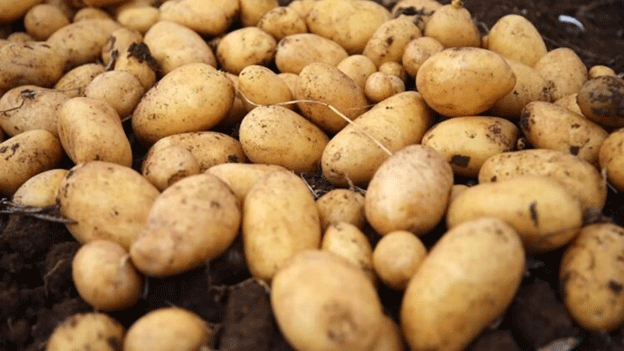This season, an oversupply of potatoes in Turkey has raised concerns among farmers and policymakers alike. Due to unplanned production, the current yield has exceeded both domestic consumption needs and export capacities, signaling a looming problem for the agricultural sector. In response, the Ministry of Agriculture has launched a nationwide initiative aimed at boosting potato consumption across public institutions to manage this surplus and protect both farmers and market stability.
The Challenge: An Unbalanced Production Cycle
Turkey has seen a pattern of overproduction in its agricultural sector, with the potato market being the latest victim of this imbalance. Uncoordinated farming decisions have led to an excess supply of various crops, including potatoes, tomatoes, watermelons, and beans, leaving farmers unable to find buyers or forced to sell at a loss. The recent protests by farmers across different regions emphasize the gravity of the situation, as they struggle to recover costs.
The potato surplus, in particular, presents a significant challenge. According to a directive issued by the Ministry of Agriculture and Forestry, production levels have surpassed both local consumption and the country’s export capacity, increasing the risk of price volatility. Such fluctuations can negatively impact both producers and consumers, destabilizing the agricultural economy.
The Ministry’s Response: A Strategic Shift
Recognizing the potential consequences of this oversupply, the Ministry of Agriculture and Forestry has taken swift action. In a formal letter issued by Dr. Ahmet Bağcı, Deputy Minister, the Ministry outlined the need for immediate intervention to manage the surplus. The directive encourages public institutions—including ministries, military units, hospitals, schools, and municipalities—to prioritize potato-based meals in their dining services. Additionally, the Ministry has called for an emphasis on potatoes in food aid programs and other institutional food supplies.
This move is part of a broader strategy to mitigate the effects of supply-demand imbalances that have been exacerbated by fluctuating natural conditions, which impact crop production. By encouraging greater consumption through public channels, the Ministry aims to absorb excess production, stabilize prices, and reduce the risk of long-term negative consequences for farmers’ planting decisions in future seasons.
Potato Surplus and Its Broader Implications
The Ministry’s effort to promote potato consumption also addresses deeper systemic issues in Turkey’s agricultural planning. As potato yields fluctuate due to both natural and economic factors, surplus years like this one can lead to significant economic challenges. If not properly managed, these fluctuations can result in heavy losses for farmers, forcing many to abandon the crop in future seasons, which would further destabilize agricultural sustainability.
By coordinating with public institutions, the Ministry hopes to create a buffer against these market forces, ensuring that farmers are able to sell their crops without taking heavy losses. Additionally, this initiative sets the groundwork for improving agricultural planning by highlighting the need for more coordinated, data-driven decisions in crop production.
The Role of Public Institutions
One of the most important aspects of this plan is its reliance on public institutions to drive change. By involving various ministries, universities, hospitals, and military facilities, the Ministry of Agriculture hopes to increase the domestic demand for potatoes in a meaningful and sustainable way. Large-scale consumption through these channels can provide immediate relief to farmers and ensure that the surplus is managed efficiently.
The inclusion of potatoes in food aid programs is particularly important, as it directly addresses food security while simultaneously supporting local farmers. This approach not only helps stabilize the agricultural economy but also contributes to reducing waste and making better use of surplus produce.
A Collaborative Effort for Sustainable Agriculture
The Ministry of Agriculture’s initiative to boost potato consumption highlights the critical role of strategic planning in managing agricultural surpluses. By focusing on collaboration with public institutions, the Ministry aims to absorb excess production and ensure market stability. While this is a short-term solution to the problem, it also underscores the importance of better planning in Turkey’s agricultural sector. Long-term sustainability will depend on improved forecasting, coordination, and management of crop production to prevent future imbalances.
Through proactive measures and public cooperation, Turkey can turn this potato surplus into an opportunity, protecting farmers’ livelihoods and promoting a more resilient agricultural system.






